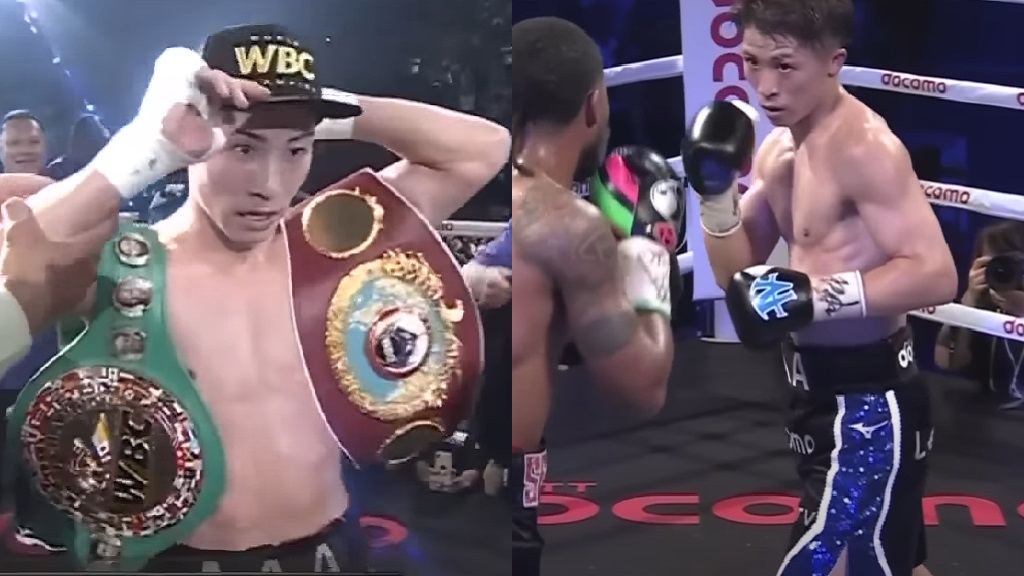In the high-stakes world of combat sports, few individuals command the global adoration and national pride that Naoya Inoue does. Known universally as “The Monster,” his career trajectory has been nothing short of meteoric, culminating in his status as an undisputed champion across four weight classes and a genuine pound-for-pound elite. As Inoue prepares for his highly anticipated return to home soil in Nagoya, Japan, his unparalleled popularity has, perhaps ironically, spawned a significant challenge: a rampant ticket resale market, inflating prices to exorbitant levels that threaten to sideline genuine fans.
The Unstoppable Force: Naoya Inoue`s Dominance and Magnetic Appeal
With an immaculate professional record of 30 wins, 0 losses, and an astounding 27 knockouts, Naoya Inoue’s prowess inside the boxing ring is beyond dispute. His recent achievements include successfully defending his undisputed super-bantamweight crown on four occasions within a mere 15-month span, with the majority of these electrifying performances captivating audiences in Japan. This consistent display of tactical brilliance, raw power, and technical precision has solidified his position as a national hero and an international boxing phenomenon. It is this very star quality that drives fans to desperate measures to witness his genius firsthand.
His forthcoming bout against Uzbekistan’s formidable Murodjon Akhmadaliev (14-1, 11 KOs), a former unified champion, is widely considered to be one of Inoue’s most challenging tests in the competitive 122lb division. This isn`t just another title defense; it’s a high-stakes encounter that perfectly encapsulates Inoue`s relentless pursuit of boxing history. Unsurprisingly, the demand for tickets has been immense, unequivocally illustrating his profound drawing power.
The Unintended Consequence: A Scalper`s Boomtown
The 17,000 available tickets for the Nagoya event reportedly vanished from official sales channels in a breathtaking 10 minutes. While such rapid sales are typically a cause for celebration among event organizers, the triumph quickly sours for dedicated fans and promoters alike when the secondary market intervenes. Data indicates that tickets, originally priced at a reasonable ¥10,000 (approximately $67 USD), are now being offered on unauthorized and frequently unregulated platforms for as much as ¥130,000 (around $882 USD) – a colossal 1300% increase from face value. This situation, while undeniably a testament to Inoue`s immense drawing power, underscores a pervasive and often predatory issue within the live events sector: the exploitation of fan passion by opportunistic resellers.
It seems even a `Monster` of the ring can inadvertently create another kind of monster in the market.
Promoter`s Stance: Drawing a Line in the Sand
The astronomical price hikes and the proliferation of unauthorized resales have not escaped the attention of the event`s promoter, Hideyuki Ohashi. Recognizing the detrimental impact on fan accessibility and the overall integrity of the sport, Ohashi has reportedly initiated consultations with legal counsel, signaling an intent to pursue legal action against individuals engaged in illicit ticket reselling. This decisive move is a clear declaration that the promotion is committed to shielding its audience from exploitative pricing and ensuring equitable access to future events.
“We have been warning people to be careful in the past, but resales have been confirmed,” Ohashi stated, further adding, “We are currently consulting with lawyers about how to deal with this.”
This proactive approach by Ohashi’s team is critical, not solely for the impending Inoue-Akhmadaliev clash, but also for establishing a vital precedent. The battle against ticket scalping is an enduring challenge, and robust legal deterrents frequently prove to be the most effective instruments in a promoter`s toolkit.
Anticipating the Future: The Junto Nakatani Variable
The current ticket frenzy, however, may only be a precursor to an even grander spectacle. Industry whispers suggest a potential “generational event” featuring Inoue against fellow Japanese pound-for-pound rival Junto Nakatani (31-0, 24 KOs) could materialize as early as 2026. If the present demand for the Akhmadaliev fight is any indication, the secondary ticket market for an Inoue-Nakatani showdown could descend into unprecedented levels of disorder. Ohashi`s current legal efforts are therefore not merely about a single fight; they represent a strategic endeavor to implement safeguards against future market manipulation, striving to ensure that such a historic encounter remains accessible to genuine enthusiasts rather than becoming an exclusive commodity for profiteers.
Beyond the Headliner: A Robust Supporting Card
While the spotlight shines brightest on Inoue, the comprehensive fight card offers more than just the main attraction. The event, scheduled for Sunday, September 14, at the IG Arena, will also feature Yoshiki Takei (11-0, 9 KOs) defending his WBO bantamweight title against Mexico’s Christian Medina Jimenez (25-4, 15 KOs) in the co-main event. This adds another layer of professional boxing excellence to an evening already pulsating with anticipation, further justifying the initial ticket value, if not the exorbitant secondary market premiums.
Conclusion: A Champion`s Burden and a Promoter`s Resolve
Naoya Inoue`s meteoric ascent to global superstardom has undeniably brought immense prestige to Japanese boxing. However, it has also starkly illuminated the persistent challenges associated with managing extreme public demand in the contemporary digital landscape. The ongoing struggle against ticket scalping is a multifaceted one, often pitting the fervent passion of dedicated fans against the cold, calculated opportunism of the secondary market. As Inoue prepares to step into the ring against Akhmadaliev, the outcome of the impending legal battle against resellers will be observed almost as intently by the industry as the fight itself, ultimately determining whether the `Monster`s` overwhelming popularity can be effectively channeled for the collective good of the sport, rather than exploited by those operating on its periphery.

